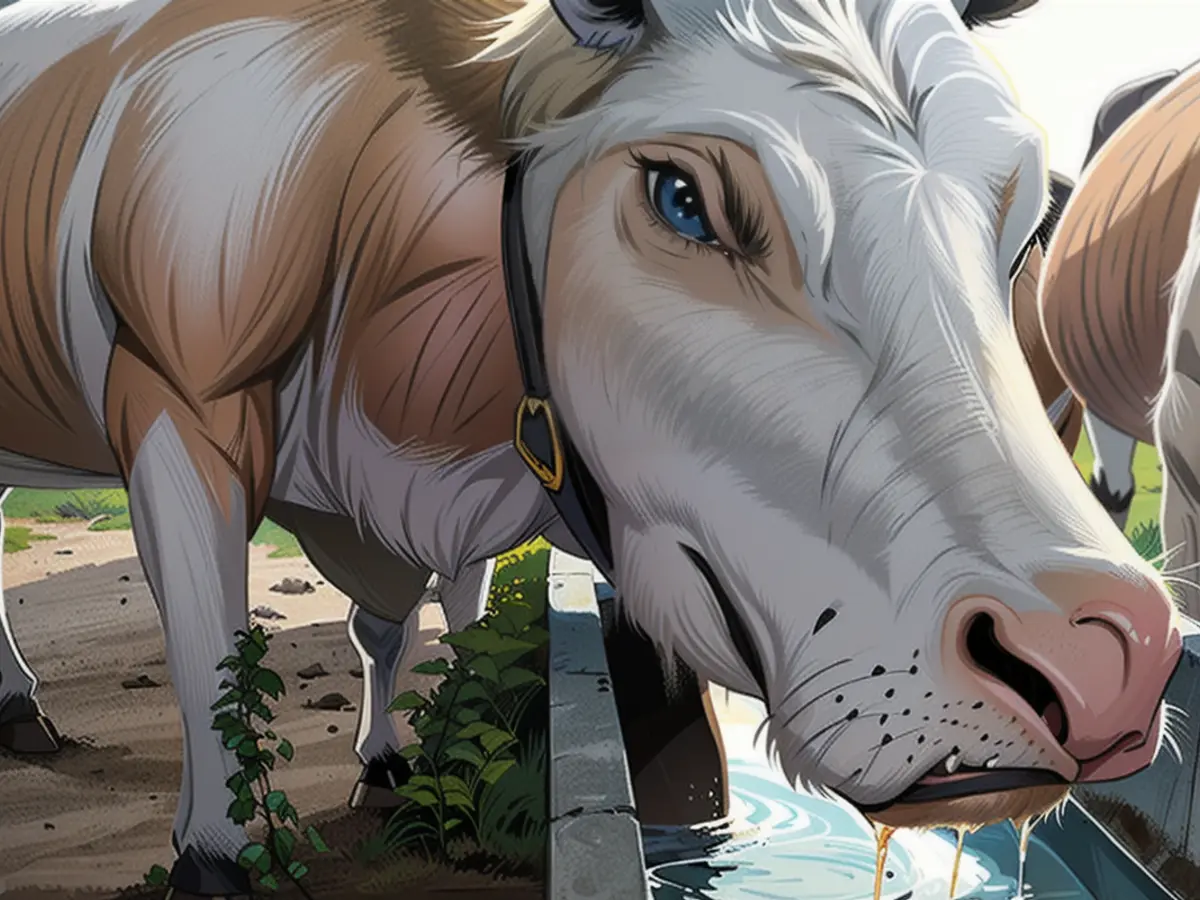Confirmed case of BSE discovered on a Scottish farm.
In Scotland, officials have acknowledged a case of mad cow disease (BSE). Sheila Voas, the UK's Chief Veterinary Officer, reassured both farmers and the general public that the threat from this singular instance is insignificant. The local administration put in place restrictions on some livestock as a preventive measure.
This cow was discovered on a farm located in Ayrshire, a south-western Scottish county. This incident was sparked by regular monitoring and stringent safety protocols. Fortunately, the infected animal never entered the food chain for humans.
According to authorities, there is no hazard to humans. The UK had a BSE case in 2021 on a farm in Somerset in the south-west of England. In March 2023, an atypical form of BSE was detected in a cow in Cornwall.
BSE, or bovine spongiform encephalopathy, is a condition that causes cattle's brain matter to deteriorate. In traditional BSE, animals get infected when they consume meat and bone meal containing prions. Human consumption of contaminated meat may cause the deadly Creutzfeldt-Jakob disease.
BSE surfaced mostly in the UK at the end of the 1980s, with more than 180,000 cases traced back to the feeding of polluted meat and bone meal. The disease later became widespread in Germany, with the discovery of BSE in a cow in 2000, followed by hundreds more instances.
Read also:
- Year of climate records: extreme is the new normal
- Precautionary arrests show Islamist terror threat
- UN vote urges Israel to ceasefire
- SPD rules out budget resolution before the end of the year
Following the BSE case discovery in Scotland, a local farm implemented stricter safety measures to prevent an epizootic outbreak of mad cow disease. Despite the UK having multiple BSE cases in the past, such as in Somerset and Cornwall, the current episode poses no risk to human health, as confirmed by authorities.
Source: www.ntv.de








